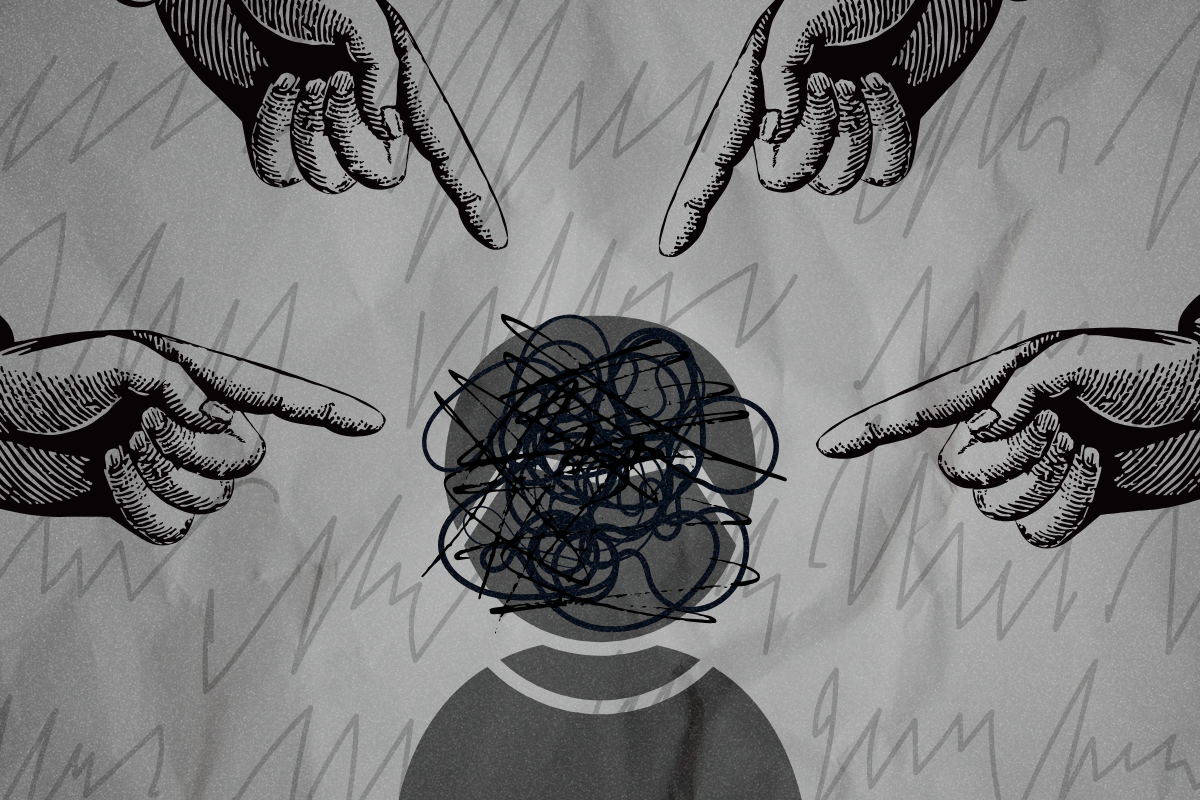Toxic masculinity is a topic heavily discussed in the new Netflix series “Adolescence.” The show is based on a boy in England who is caught murdering Katie, his female classmate. The series perfectly depicts this issue with 13-year-old Jamie being questioned at the police station as the police and psychologists try to understand what Jamie has done. Each perspective depicts a different part of the story with episodes from the perspective of the police, the school, the psychiatrist, and Jamie’s family.
The show’s opening scene is the police entering Jamie’s house and arresting him. His entire family was quite confused and was persistently telling the police he didn’t do anything wrong.
As the show goes on, we see Jamie getting questioned by both the police and a psychiatrist. As he talks to both, he still consistently mentions that he didn’t do anything, and he gets more and more aggressive as the question keeps getting asked.
As viewers, we later find that Jamie was exposed to lots of misogynistic content on Instagram, along with being cyberbullied. Misogynistic content is spread through social media echo chambers, causing these beliefs to be drilled into young people’s minds.
Viewers begin to see the aggressiveness in Jamie’s persona as the series progresses.
The third episode focuses on a conversation between Jamie and his female psychiatrist. She tries to figure out why Jamie felt the need to murder his classmate, Katie.
Viewers find that Katie had photos of her leaked to her school, and out of pity, Jamie felt the need to ask her out. Jamie then mentions that he got rejected and began to call Katie disrespectful names. Out of resentment from the pity, Katie called him an “incel,” a male who is unable to find a partner. Jamie took this to a severe offense, so extreme that he felt the need to kill Katie.
As the psychiatrist continues to ask him questions, Jamie reaches a point of no return and starts yelling at her saying, “You do not tell me when to sit down; you do not control me; you do not control what I do in my life get that in that little head of yours.”
This kind of behavior further displays the toxic masculine belief system constructed into young minds.
Influencer Andrew Tate is another example. In his podcast, he has mentioned several times that women’s minds need molding. This kind of thought put into action can display what Jamie was trying to achieve with his psychiatrist.
The show reaches its ending point when Jamie calls his dad from prison, saying that he will plead guilty. This leads to the final shot of the show, in which Jamie’s father begins apologizing to one of Jamie’s stuffed animals as if it were him. He continues to take full blame for what happened to Katie, knowing that they only filled their house with love and enforced that love onto their children.
“Adolescence” gained traction on social media, as viewers noticed how this very real-life scenario is not talked about at all. One of the co-creators of the show, Stephen Graham, mentioned in a Jimmy Fallon interview that he saw two news stories within a few months, consisting of a teenage boy stabbing a teenage girl to death. He explained his true displeasure with this topic.
“These were at opposite ends of [Great Britain], and if I’m really honest with you, Jim, it hurt my heart— and I just think about what kind of a society we live in where young boys stab young girls,” Graham said.
Throughout the interview, he continues to go on about how when his generation was growing up, they would play outside, hang out, draw, and just do activities. However, nowadays, there is so much content at the end of our fingertips that can severely impact young minds.
“Red-pill” content is a subculture of the internet called the manosphere. A lot of the posts contain information to make viewers think it is the “truth” about the world, while in reality, it is misogynistic content that can hurt the perception of women.
With rising influencers like Tate, this kind of viewpoint is extremely enforced, and when you go down this rabbit hole, the creators can make you feel more masculine for having these anti-women viewpoints.
The internet can see what you interact with, so if you begin to interact with these kinds of “red pill” posts, your feed will immediately send you to an echo chamber filled with more such content.
This issue is beginning to get more and more serious as time goes on, as there is no end to this mindset, and it is continuously encouraged on social media. It goes beyond the covers of “being a man of the house” or enforcing toxic ideals onto the younger generation.
“Adolescence” took a big step forward in the talk about how influential toxic masculinity is in social media today. However, as a society, we need to continue to talk about it more openly to make sure Jamie’s story doesn’t become everyone’s story.






Jai Viswanathan • Apr 21, 2025 at 9:23 am
This article makes a crucial point. Thank you for writing this.